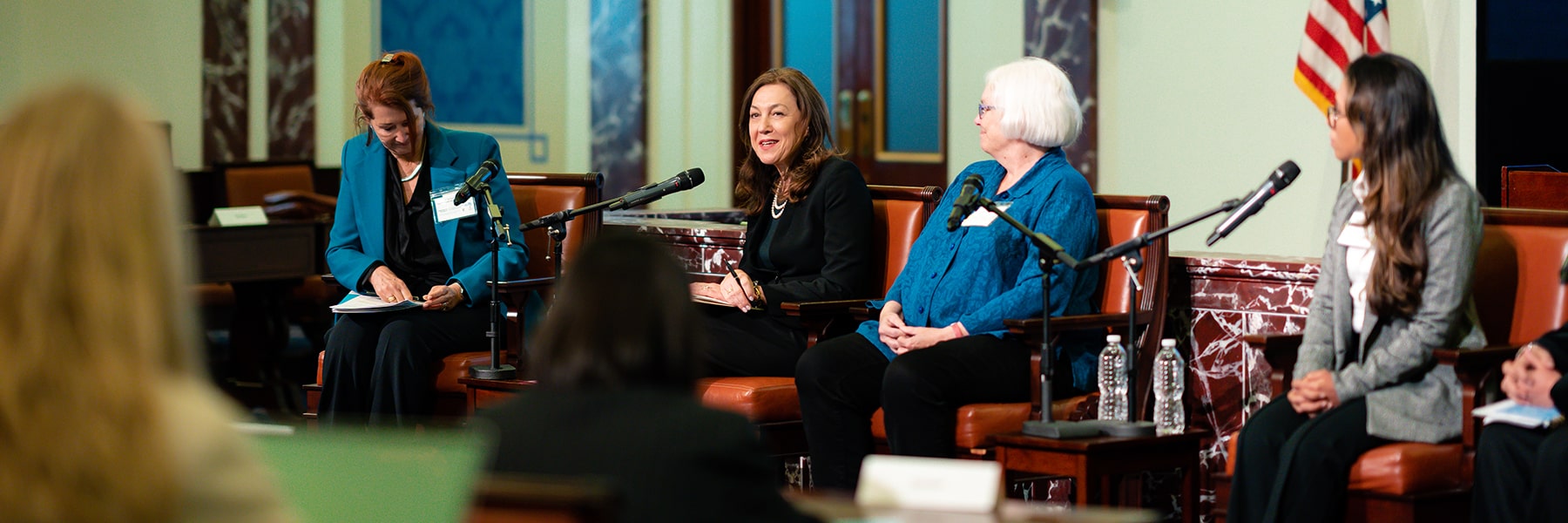Plan Your Education
How to Apply
Statement of Purpose
Write a 500-word essay on your reasons for considering the UMass Boston MPP program in relation to your academic background, professional work experience, and career goals, and a 1,000-word essay describing your personal qualities and development and how they have influenced your career choice.
Résumé or CV
Add a current résumé or CV noting your previous educational (a bachelor's degree is required) and working experience.
Official Transcripts
Submit official copies of all undergraduate and graduate transcripts from all colleges attended.
Writing Sample
Submit a writing sample consisting of 3-5 pages. It might be from your previous academic or professional work.
GRE Scores
The Graduate Record Exam (GRE) is not required for the MPP program. If you wish to submit GRE scores that are less than five years old, please use the UMass Boston GRE code: 3924.
Letters of Recommendation
Please include three letters of recommendation. We prefer that one letter be from a former professor or individual who can address your intellectual aptitude for graduate study; others can be from a supervisor or other professional reference.
Deadlines & Cost
Deadlines: April 1 (priority deadline) or June 15 (final deadline) for fall admissions
Application Fee: The nonrefundable application fee is $75. UMass Boston alumni and current students that plan to complete degree requirements prior to graduate enrollment can submit the application without paying the application fee. Students from underrepresented groups may apply (by emailing the program director) for the limited number of application fee waivers.
Estimate Your Program Cost: Get a feel for your expected program costs using the Graduate Program Cost Calculator.
Program Cost Information: For more detailed information on costs, please visit the Bursar's website or send an email to Bursar@umb.edu. Please refer to Graduate Student Financial Aid for more information on financial aid.
Curriculum
Year 1 - Fall (9 credits)
- PPOL-G 611 Public Policy Processes: Environmental Power and Outcomes
- PUBPOL 620 Analytic Methods for Public Policy
- PPOL-G 621 Microeconomics
Year 1 - Spring (9 credits)
- PUBPOL 610 Policy and Program Evaluation
- PPOL-G 602 Political Economy of Class, Race and Gender
- PPOL-G 622 Public Finance and Budgeting
Year 1 - Summer (3 credits)
- PUBPOL 699 Internship (can substitute with elective)
Year 2 - Fall (9 credits)
- Concentration I: Elective I
- Concentration I: Elective II
- Concentration II: Elective I
Year 2 - Spring (9 credits)
- Concentration II: Elective II
- PUBPOL 698 Capstone
The program curriculum requires completion of at least four elective courses. At least two courses should be drawn from one concentration area, and at least two other courses should be drawn from another concentration area. In addition, students are required to complete an internship (after the first year of coursework) and a capstone research project (during the second year of study).
Students can choose two from three possible concentrations: Nonprofit Organization Policy and Management; Social Policy and Racial Equity; and Data Analytics and Policy Simulation.
For more information on curriculum, including course descriptions and degree requirements, visit the Academic Catalog.
Learning Outcomes
- Learn how to shape policy across the public, nonprofit, and private sectors.
- Enhance skills in policy design, analysis, and the execution of impactful interventions.
- Acquire expertise in Data Analytics and Policy Simulation, Social Policy and Racial Equity, and Nonprofit Organization Policy and Management.
- Study the integration of public policy with cutting-edge information systems and technology.
- Gain a deep understanding of various application areas, including service delivery, nonprofit management, urban planning, community development, conflict resolution, and applied social sciences.
Graduation Criteria
Program Requirements
The program requires 39 credits of coursework including:
- Six semester‐length courses for the core curriculum (18 credits)
- Four semester‐length concentration courses in 2 different concentration areas (12 credits)
- Internship [can be replaced by elective] (3 credits)
- Capstone project (6 credits)
Students are expected to complete the 39-credit coursework, which includes ten three-credit courses, a three-credit internship (an elective can replace that), and a six-credit capstone project, within two years. All courses will be delivered in a synchronous format to foster real-time engagement and learning.
Capstone: Completion of a written paper and oral presentation.
Internship: There are multiple ways to satisfy the internship requirement. One is to complete the three-credit course PUBPOL 699 Internship in the summer after the first year. This will require students to coordinate with the Internship course instructor during the spring semester of the first year to choose an internship, to complete the internship during the summer after the first year, to attend PUBPOL 699 class sessions during the first summer session and to make a final internship presentation at the end of the second summer session. Alternatively, if students have sufficient and appropriate recent and/or current professional experience, they can request the MPP program director to waive this internship requirement. Finally, students may choose to take an additional three‐credit elective in place of internship.
Learning Outcomes
Learning Outcomes for the MPP Program:
- Mastery of data analytics, science, and policy simulation for inclusive, equitable, and effective policy formulation and analysis
- Deep knowledge across critical public and social policy areas, with skills in equity audits and racial justice analysis
- Proficiency in advanced methodologies for evaluating public and nonprofit sector interventions
Graduates will:
- Promote effective and equitable policies through informed analysis and design, improving public value and social justice.
- Produce impactful research through empirical analysis to address societal issues.
- Lead in government, nonprofits, and for-profits, driving impactful policy initiatives with advanced analytic methods.
Contact
Graduate Program Director Christian Weller
christian.weller@umb.edu
(617) 287-6938
Graduate Program Administrator, Outreach and Recruitment Jack Li
public.affairs@umb.edu
(617) 287-6905

Public Policy & Public Affairs
Learn more about UMass Boston's Public Policy & Public Affairs department, our research, and our faculty.
Explore Department of Public Policy & Public Affairs
The McCormack School
Learn more about the McCormack School, a nationally recognized leader in public service education dedicated to social justice and equity.
Explore the McCormack School